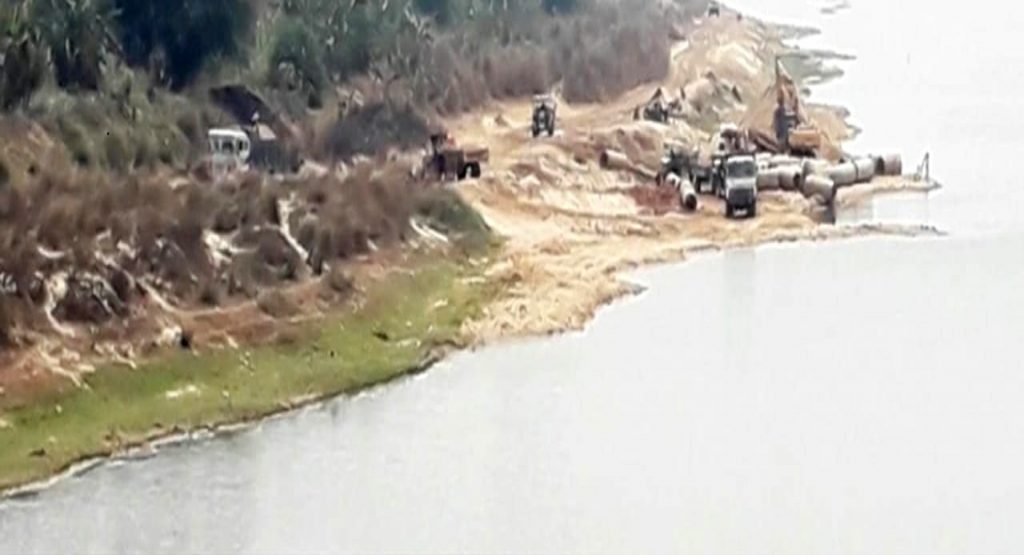Bhograi: Subarnarekha river, once known as Swarnarekha, has been at the receiving end of pollution in Balasore. According to reports, effluents from big industries like Tata Steel and others in Jamshedpur are being released into the river, polluting its water.
Moreover, various chemicals used by fishermen to catch fish are also contaminating its water. Subarnarekah river originates in Nagri village in Ranchi plateau of Jharkhand.
The river flows though Bhograi and Baliapal in Balasore before merging into the Bay of Bengal at Choumukh. This inter-state river has a course of 495 km flowing through Jamshedpur, Chandi, Chandbali, Ghatshila, Gopiballbhpur, Dantun and Jaleswar.
The river is capable of containing 1800 mm rainfall and it plays a key role in the ecology from June to October, according to some meteorologists.
A legend has it that people in Ranchi used to call the river Swarnarekha as valuable metals like gold were found at Piska, a place along the river course.
Over years, the river was called Subarnarekha. As the sand of the river is of high quality, mafia from West Bengal has been transporting truckloads of sand from the river bed to places outside the country every day, locals alleged.
According to the locals, owing to rampant sand mining over years the river has changed its course at different places in Balasore. Due to erosion, both the banks of the river have been collapsing, posing a serious threat to some riparian villages.
Illegal sand mining by Bengal mafia has also often triggered tension among locals who have been opposing it.
Expressing concern over the rampant sand mining and pollution, convenor of Nadi Surakha Samiti, Sudharna Das had moved the National Green Tribunal (NGT) in Kolkata in 2017.
Hearing the case, the NGT, in 2018, had ordered the administration of both the states to stop illegal sand mining in the river. However, despite raids and actions against the mafia, sand mining has not been completely curbed, local lamented.
On the other hand, the river is considered as woe for people of six panchayats in Mayurbhanj district and most areas under Bhograi, Baliapal, Jaleswar and Basta blocks in Balasore.
Centuries ago, the river played host to flourishing maritime activities. Pipili port was developed at Subrnarekha river mouth. The port used to bear signatures of the glorious maritime past of the Utkal.
In 2008, the state government submitted a proposal, (Subarnarekha Renovation Project), to the UPA government at the Centre for dredging the river and checking the flow of floodwater from neighbouring West Bengal.
In 2009, a high-level committee of the Central government had conducted a survey on the proposal and estimated that implementing the project would cost Rs 900 crore. The survey report was sent to the Central Water Commission (CWC).
However, the CWC found the survey report faulty and sent it back to the Central government. “As long as floods are not controlled in Subarnarekha along with its dredging, north Balasore will continue to suffer every year,” said Dr Srikantcharan Patra, a researcher.
As for illegal sand mining, Bhograi tehsildar Kamalakant Panda said that sand ghats along the river have not been auctioned. Action will be taken against those carrying out illegal sand mining, he added.
PNN
